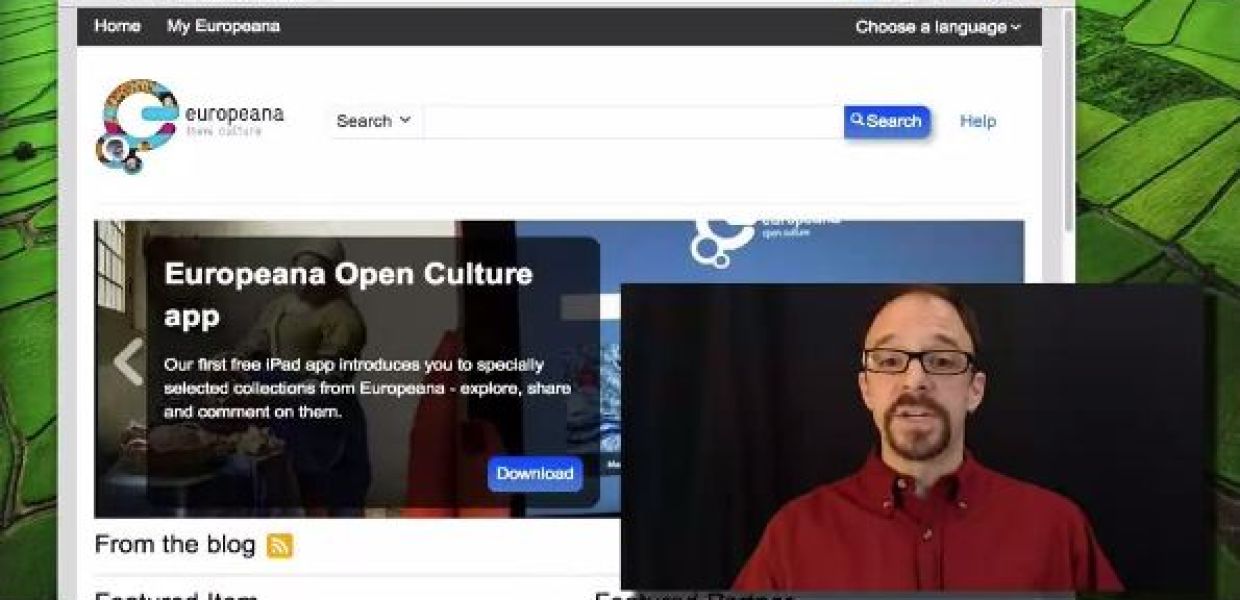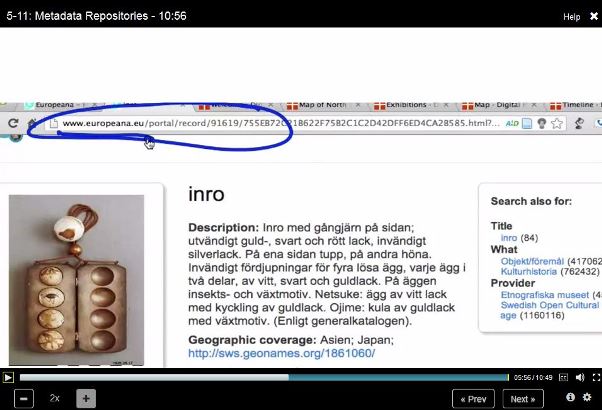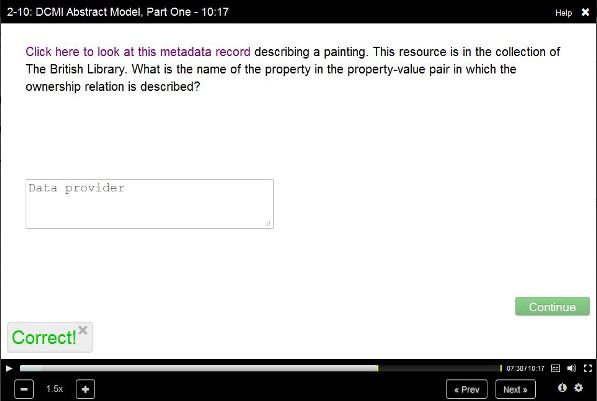Europeana used in Massive Open Online Course on Metadata

The School of Information and Library Science from the University of North Carolina at Chapel Hill has recently run a Massive Open Online Course (MOOC) called 'Metadata: Organizing and Discovering Information'. Several Europeana staff members from a range of teams were amongst more than 26,000 students to take this free course and were delighted to see Europeana used as an example by course leader, Dr Jeffrey Pomerantz.
Henning Scholz, Europeana Network Coordinator, took the course and says 'It's great to see Europeana used in this way. The course has global coverage and to see Europeana held up as an example and used as an educational resource really reflects all the hard work that we and the Europeana Network have done in establishing the Europeana metadata repository.'

Jeff introduces students to the Europeana portal
We've been in touch with Jeff to find out how he came into contact with Europeana and why he thinks Europeana is a good resource for this kind of information science education.
But first things first, what's this course all about? As the course overview says, 'Metadata is an unsung hero of the modern world, the plumbing that makes the information age possible. This course describes how Metadata is used as an information tool for the Web, for databases, and for the software and computing applications around us.' The 8-week course used videos and demos to cover topics such as organising metadata, metadata schemas, Dublin Core, metadata for the web and for networks, and how to create and evaluate metadata. A great overview then for anyone working with digital cultural heritage!
And now to meet the man behind the course, Dr Jeff Pomerantz. Jeff has a Masters in Library & Information Science from Simmons College, Boston, and did a PhD at Syracuse University. He's been working at UNC Chapel Hill for 10 years. He has done research into digital referencing and digital libraries, so he's well positioned to teach people about metadata.
But how did he discover Europeana? Jeff says, 'Several years ago, I worked on a project to develop curriculum materials for teaching digital library-related topics, that could be used in both information science and computer science programmes. The Bologna Process was under way when that project was wrapping up, and some European colleagues and I thought that we should extend that curriculum work to span US and European programmes. Europeana was just getting started at that time, and some of my European colleagues were involved in it. From my early work with scholarly publishing - and from later experience of publishing under the US copyright regime - I was very interested in the idea of enabling access to cultural heritage on a large scale. Then the Digital Public Library of America (DPLA) started up in the US, and I followed that work very closely, and of course the DPLA has modelled some of its operations on Europeana.'

A Europeana record used as a metadata example
Why you think it’s important to teach people about metadata? Jeff says, 'In the modern world, metadata is all around us, all the time, but we usually don't see it and most of the time, we aren't even aware that it's there. There's a lot of discussion (at least in the US) that programming should be a core skill that's taught in schools much younger, because so much of the modern world runs on code. I agree with that, and I feel the same way about information science: understanding how information moves is empowering. And metadata is foundational to information science, so I thought it should be offered as a MOOC, to introduce the subject to a wide general audience.'

A quiz question using a Europeana and British Library record as an example
And why did you chose Europeana as an example? Jeff says, 'I used examples from both Europeana and the DPLA, first, because it allowed me to show 2 metadata records for the same resource: one from Europeana/DPLA and one from the owning institution. The Europeana records tend to be richer - that is, they have more elements with richer values provided. So metadata records from Europeana were very useful as examples, they allowed me to talk about things like metadata schemas, controlled vocabularies, and manually-created vs automatically-created metadata.'
Although this course is now over, if you're interested in taking it, you can sign up to find out about future dates.
